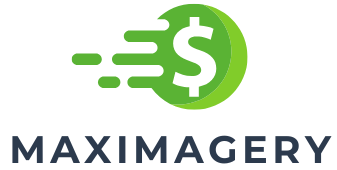Table of Contents
ToggleLet’s face it, handling personal finance can sometimes feel like herding cats while walking a tightrope. You’re trying to balance a budget, pay bills, and maybe even save for that vacation you’ve been dreaming of. Here’s the good news, if you’re living in Nashville, GA, you’re not alone in this journey. From creating a budget to conquering debt, this guide will help you navigate the financial landscape with ease and maybe even a chuckle or two. After all, managing your finances shouldn’t be a death sentence: it should be a chance to take control of your future, one dollar at a time.
Understanding Personal Finance Basics

Personal finance encompasses everything from budgeting and saving to investing and planning for retirement. It’s essentially the art of managing your hard-earned cash flow to avoid falling into the rabbit hole of financial chaos. Understanding the basics is crucial, especially for Nashville residents who may face unique economic factors.
First off, let’s talk about budgeting. A budget is not just a fancy word for ‘list of things I can’t buy.’ It’s a powerful tool that helps you track income versus expenses. Most experts suggest the 50/30/20 rule: 50% of your income for needs, 30% for wants, and 20% for savings and debt repayment. This simple structure can be a game changer, allowing for some wiggle room without sacrificing your financial goals.
Next, saving is not just for the overly cautious: it’s a lifeline. Emergency funds should ideally cover three to six months of expenses. This may sound daunting, but setting aside small amounts regularly can, over time, make a significant impact. Also, understanding credit scores and how they work can save you from future headaches. Every Nashville resident should aim for a good credit score, as this can lead to lower interest rates on loans and mortgages.
Budgeting Strategies for Nashville Residents
When crafting a budget in Nashville, considering local living expenses is key. The cost of living fluctuates across neighborhoods: knowing where your money goes in different areas can be enlightening.
One effective strategy is the envelope system. Simply put, you allocate cash for specific expenses like groceries and entertainment into envelopes. Once the cash is gone, it’s gone. This can lead to more mindful spending and less risk of overshooting your budget.
Apps like Mint or YNAB (You Need A Budget) can also assist in tracking expenses seamlessly. Nashville residents are tech-savvy, so why not leverage technology to streamline budgeting? Another point to consider is dealing with seasonal expenses, like adjusting your budget during the summer when air conditioning bills skyrocket in Georgia. Planning for these fluctuations ahead of time can reduce stress and prevent overspending.
Local Resources for Financial Education
The importance of financial education cannot be overstated, especially in a vibrant community like Nashville, GA. Luckily, there are numerous local resources to tap into.
The Nashville Public Library offers free financial literacy workshops that cover everything from budgeting basics to investment strategies. These workshops are invaluable for anyone looking to enhance their financial IQ. Also, organizations like the Better Business Bureau provide guidance on how to avoid scams and make safe financial decisions.
Online platforms like Khan Academy and Coursera offer free courses on personal finance that can supplement local teachings. By combining these resources, Nashville residents can gain a comprehensive understanding of personal finance channels. Joining community boards or online groups centered around financial discussions can also provide peer support and knowledge sharing.
Investing in Nashville: Opportunities and Challenges
Investing can feel overwhelming, especially when there are myriad opportunities available in Nashville. The real estate market is buzzing, with house prices climbing due to the area’s economic growth. For aspiring investors, understanding local market trends is crucial. Networking events aimed at investors can provide insights and assistance.
But, challenges aren’t rare. Areas with rapid growth can introduce market volatility. For that reason, careful research before jumping on investment opportunities is essential. Also, investing in stocks or peer-to-peer lending platforms can provide diversification beyond real estate. Nashville currently offers a couple of investment clubs aimed at assisting newcomers to navigate the terrain effectively, showcasing the community spirit of helping one another grow financially.
Understanding risk tolerance also plays a substantial role. Know how much risk you’re willing to take based on your financial goals, and tailor your investment strategies accordingly.
Navigating Debt Management in Nashville
Debt can feel like a persistent shadow, but few understand the intricacies of managing it effectively. Nashville’s economic backdrop has its complexities, so being proactive in dealing with debts can help alleviate stress.
First, enlisting the help of a certified credit counselor can reveal tailored payment plans, especially for those feeling overwhelmed. Organizations like the National Foundation for Credit Counseling offer guidance and resources that residents can benefit from directly.
Also, setting up a debt snowball method, where you pay off the smallest debts first, can create a psychological boost. This method allows individuals to build momentum and tackle larger debts over time. Simplifying monthly payments by consolidating high-interest debts can save money and reduce the hassle of multiple payments. It’s integral that Nashville residents stay informed about their rights when dealing with debts to make empowered decisions.
Retirement Planning for Nashville Residents
Planning for retirement may sound like an exercise better suited for your 401(k)-not-very-fun uncle, but it’s crucial for everyone, even Nashville residents just starting their careers. The key is to start early. The sooner you contribute to retirement plans, the more time your money has to grow.
Utilizing employer-sponsored retirement plans like a 401(k) can provide not just tax benefits but also employer matching, which is free money. Another option, especially for self-employed individuals, is setting up a Simplified Employee Pension (SEP) IRA or a Solo 401(k).
Beyond simply saving, understanding various investment options available for retirement is necessary. Various local financial advisors can provide personalized investment strategies to fit individual needs. It’s also wise to consider healthcare costs in retirement since navigating Medicare and supplemental insurance can feel like a second job in itself.





